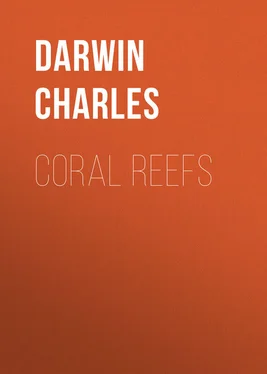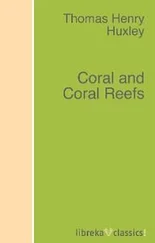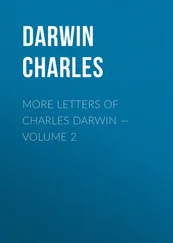Charles Darwin - Coral Reefs
Здесь есть возможность читать онлайн «Charles Darwin - Coral Reefs» — ознакомительный отрывок электронной книги совершенно бесплатно, а после прочтения отрывка купить полную версию. В некоторых случаях можно слушать аудио, скачать через торрент в формате fb2 и присутствует краткое содержание. Жанр: foreign_antique, foreign_prose, на английском языке. Описание произведения, (предисловие) а так же отзывы посетителей доступны на портале библиотеки ЛибКат.
- Название:Coral Reefs
- Автор:
- Жанр:
- Год:неизвестен
- ISBN:нет данных
- Рейтинг книги:5 / 5. Голосов: 1
-
Избранное:Добавить в избранное
- Отзывы:
-
Ваша оценка:
- 100
- 1
- 2
- 3
- 4
- 5
Coral Reefs: краткое содержание, описание и аннотация
Предлагаем к чтению аннотацию, описание, краткое содержание или предисловие (зависит от того, что написал сам автор книги «Coral Reefs»). Если вы не нашли необходимую информацию о книге — напишите в комментариях, мы постараемся отыскать её.
Coral Reefs — читать онлайн ознакомительный отрывок
Ниже представлен текст книги, разбитый по страницам. Система сохранения места последней прочитанной страницы, позволяет с удобством читать онлайн бесплатно книгу «Coral Reefs», без необходимости каждый раз заново искать на чём Вы остановились. Поставьте закладку, и сможете в любой момент перейти на страницу, на которой закончили чтение.
Интервал:
Закладка:
Charles Darwin
Coral Reefs
EDITORIAL NOTE
Although in some respects more technical in their subjects and style than Darwin's "Journal," the books here reprinted will never lose their value and interest for the originality of the observations they contain. Many parts of them are admirably adapted for giving an insight into problems regarding the structure and changes of the earth's surface, and in fact they form a charming introduction to physical geology and physiography in their application to special domains. The books themselves cannot be obtained for many times the price of the present volume, and both the general reader, who desires to know more of Darwin's work, and the student of geology, who naturally wishes to know how a master mind reasoned on most important geological subjects, will be glad of the opportunity of possessing them in a convenient and cheap form.
The three introductions, which my friend Professor Judd has kindly furnished, give critical and historical information which makes this edition of special value.
G.T.B.
THE STRUCTURE AND DISTRIBUTION OF CORAL REEFS
CRITICAL INTRODUCTION
A scientific discovery is the outcome of an interesting process of evolution in the mind of its author. When we are able to detect the germs of thought in which such a discovery has originated, and to trace the successive stages of the reasoning by which the crude idea has developed into an epoch-making book, we have the materials for reconstructing an important chapter of scientific history. Such a contribution to the story of the "making of science" may be furnished in respect to Darwin's famous theory of coral-reefs, and the clearly reasoned treatise in which it was first fully set forth.
The subject of corals and coral-reefs is one concerning which much popular misconception has always prevailed. The misleading comparison of coral-rock with the combs of bees and the nests of wasps is perhaps responsible for much of this misunderstanding; one writer has indeed described a coral-reef as being "built by fishes by means of their teeth." Scarcely less misleading, however, are the references we so frequently meet with, both in prose and verse, to the "skill," "industry," and "perseverance" of the "coral-insect" in "building" his "home." As well might we praise men for their cleverness in making their own skeletons, and laud their assiduity in filling churchyards with the same. The polyps and other organisms, whose remains accumulate to form a coral-reef, simply live and perform their natural functions, and then die, leaving behind them, in the natural course of events, the hard calcareous portions of their structures to add to the growing reef.
While the forms of coral-reefs and coral-islands are sometimes very remarkable and worthy of attentive study, there is no ground, it need scarcely be added, for the suggestion that they afford proofs of design on the part of the living builders, or that, in the words of Flinders, they constitute breastworks, defending the workshops from whence "infant colonies might be safely sent forth."
It was not till the beginning of the present century that travellers like Beechey, Chamisso, Quoy and Gaimard, Moresby, Nelson, and others, began to collect accurate details concerning the forms and structure of coral-masses, and to make such observations on the habits of reef-forming polyps, as might serve as a basis for safe reasoning concerning the origin of coral-reefs and islands. In the second volume of Lyell's "Principles of Geology," published in 1832, the final chapter gives an admirable summary of all that was then known on the subject. At that time, the ring-form of the atolls was almost universally regarded as a proof that they had grown up on submerged volcanic craters; and Lyell gave his powerful support to that theory.
Charles Darwin was never tired of acknowledging his indebtedness to Lyell. In dedicating to his friend the second edition of his "Naturalist's Voyage Round the World," Darwin writes that he does so "with grateful pleasure, as an acknowledgment that the chief part of whatever scientific merit this journal and the other works of the author may possess, has been derived from studying the well-known and admirable 'Principles of Geology.'"
The second volume of Lyell's "Principles" appeared after Darwin had left England; but it was doubtless sent on to him without delay by his faithful friend and correspondent, Professor Henslow. It appears to have reached Darwin at a most opportune moment, while, in fact, he was studying the striking evidences of slow and long-continued, but often interrupted movement on the west coast of South America. Darwin's acute mind could not fail to detect the weakness of the then prevalent theory concerning the origin of the ring-shaped atolls – and the difficulty which he found in accepting the volcanic theory, as an explanation of the phenomena of coral-reefs, is well set forth in his book.
In an interesting fragment of autobiography, Darwin has given us a very clear account of the way in which the leading idea of the theory of coral-reefs originated in his mind; he writes, "No other work of mine was begun in so deductive a spirit as this, for the whole theory was thought out on the west coast of South America, before I had seen a true coral-reef. I had therefore only to verify and extend my views by a careful examination of living reefs. But it should be observed that I had during the two previous years been incessantly attending to the effects on the shores of South America of the intermittent elevation of the land, together with the denudation and deposition of sediment. This necessarily led me to reflect much on the effects of subsidence, and it was easy to replace in imagination the continued deposition of sediment by the upward growth of corals. To do this was to form my theory of the formation of barrier-reefs and atolls."
On her homeward voyage, the "Beagle" visited Tahiti, Australia, and some of the coral-islands in the Indian Ocean, and Darwin had an opportunity of testing and verifying the conclusion at which he had arrived by studying the statements of other observers.
I well recollect a remarkable conversation I had with Darwin, shortly after the death of Lyell. With characteristic modesty, he told me that he never fully realised the importance of his theory of coral-reefs till he had an opportunity of discussing it with Lyell, shortly after the return of the "Beagle". Lyell, on receiving from the lips of its author a sketch of the new theory, was so overcome with delight that he danced about and threw himself into the wildest contortions, as was his manner when excessively pleased. He wrote shortly afterwards to Darwin as follows: – "I could think of nothing for days after your lesson on coral-reefs, but of the tops of submerged continents. It is all true, but do not flatter yourself that you will be believed till you are growing bald like me, with hard work and vexation at the incredulity of the world." On May 24th, 1837, Lyell wrote to Sir John Herschel as follows: – "I am very full of Darwin's new theory of coral-islands, and have urged Whewell to make him read it at our next meeting. I must give up my volcanic crater forever, though it cost me a pang at first, for it accounted for so much." Dr. Whewell was president of the Geological Society at the time, and on May 31st, 1837, Darwin read a paper entitled "On Certain Areas of Elevation and Subsidence in the Pacific and Indian oceans, as deduced from the Study of Coral Formations," an abstract of which appeared in the second volume of the Society's proceedings.
It was about this time that Darwin, having settled himself in lodgings at Great Marlborough Street, commenced the writing of his book on "Coral-Reefs." Many delays from ill-health and the interruption of other work, caused the progress to be slow, and his journal speaks of "recommencing" the subject in February 1839, shortly after his marriage, and again in October of the same year. In July 1841, he states that he began once more "after more than thirteen month's interval," and the last proof-sheet of the book was not corrected till May 6th, 1842. Darwin writes in his autobiography, "This book, though a small one, cost me twenty months of hard work, as I had to read every work on the islands of the Pacific, and to consult many charts." The task of elaborating and writing out his books was, with Darwin, always a very slow and laborious one; but it is clear that in accomplishing the work now under consideration, there was a long and constant struggle with the lethargy and weakness resulting from the sad condition of his health at that time.
Читать дальшеИнтервал:
Закладка:
Похожие книги на «Coral Reefs»
Представляем Вашему вниманию похожие книги на «Coral Reefs» списком для выбора. Мы отобрали схожую по названию и смыслу литературу в надежде предоставить читателям больше вариантов отыскать новые, интересные, ещё непрочитанные произведения.
Обсуждение, отзывы о книге «Coral Reefs» и просто собственные мнения читателей. Оставьте ваши комментарии, напишите, что Вы думаете о произведении, его смысле или главных героях. Укажите что конкретно понравилось, а что нет, и почему Вы так считаете.












